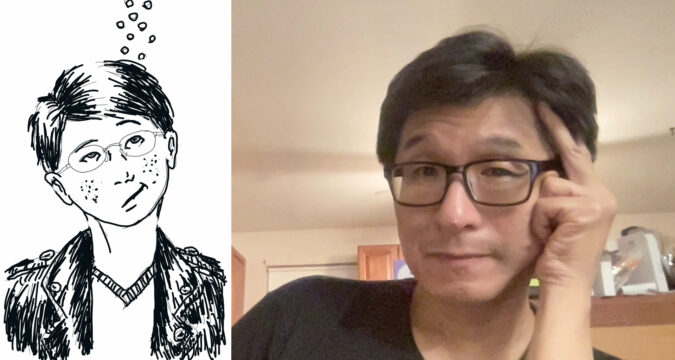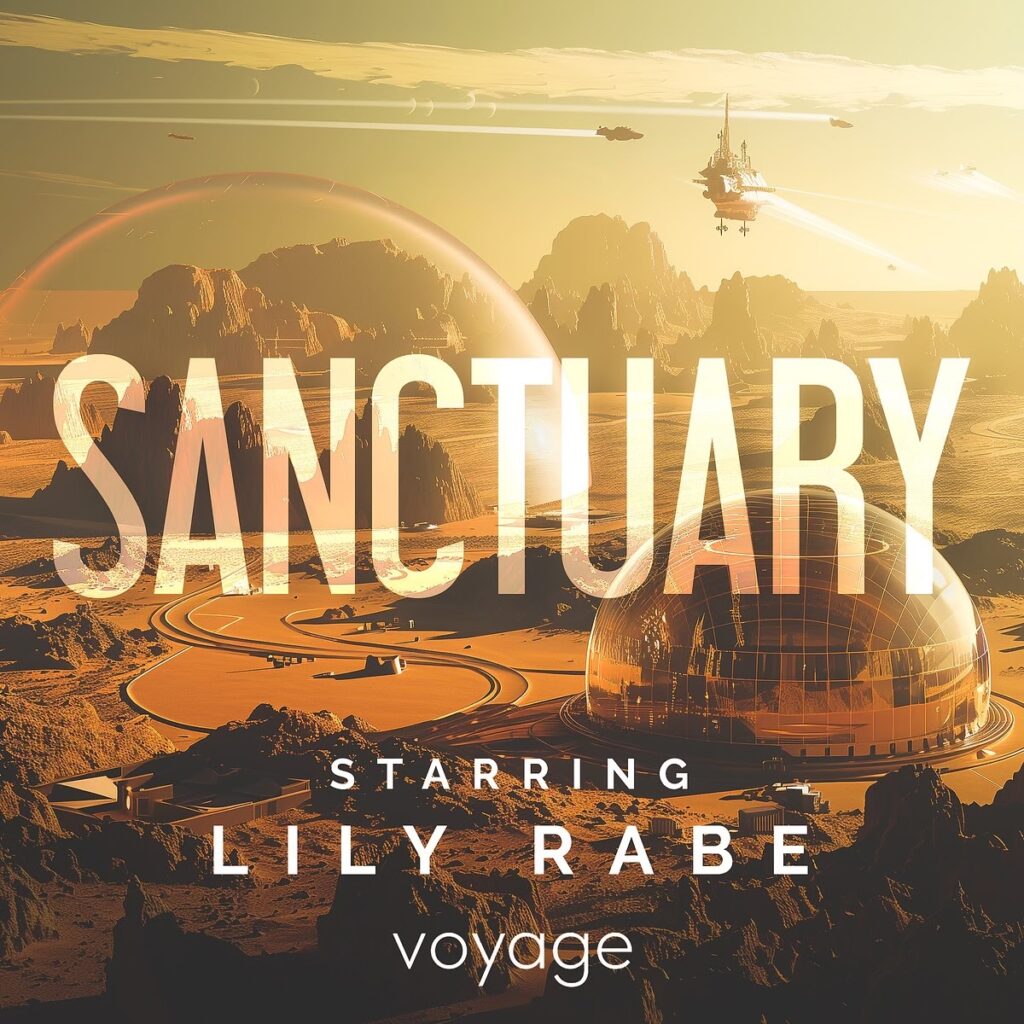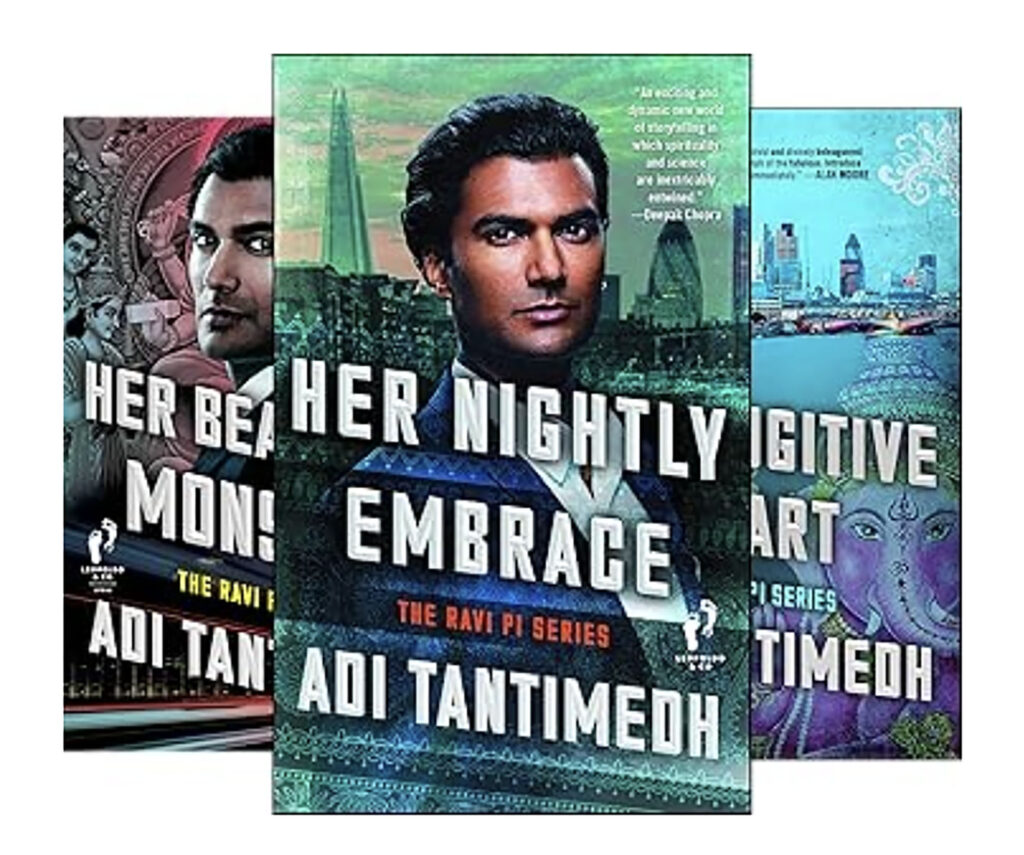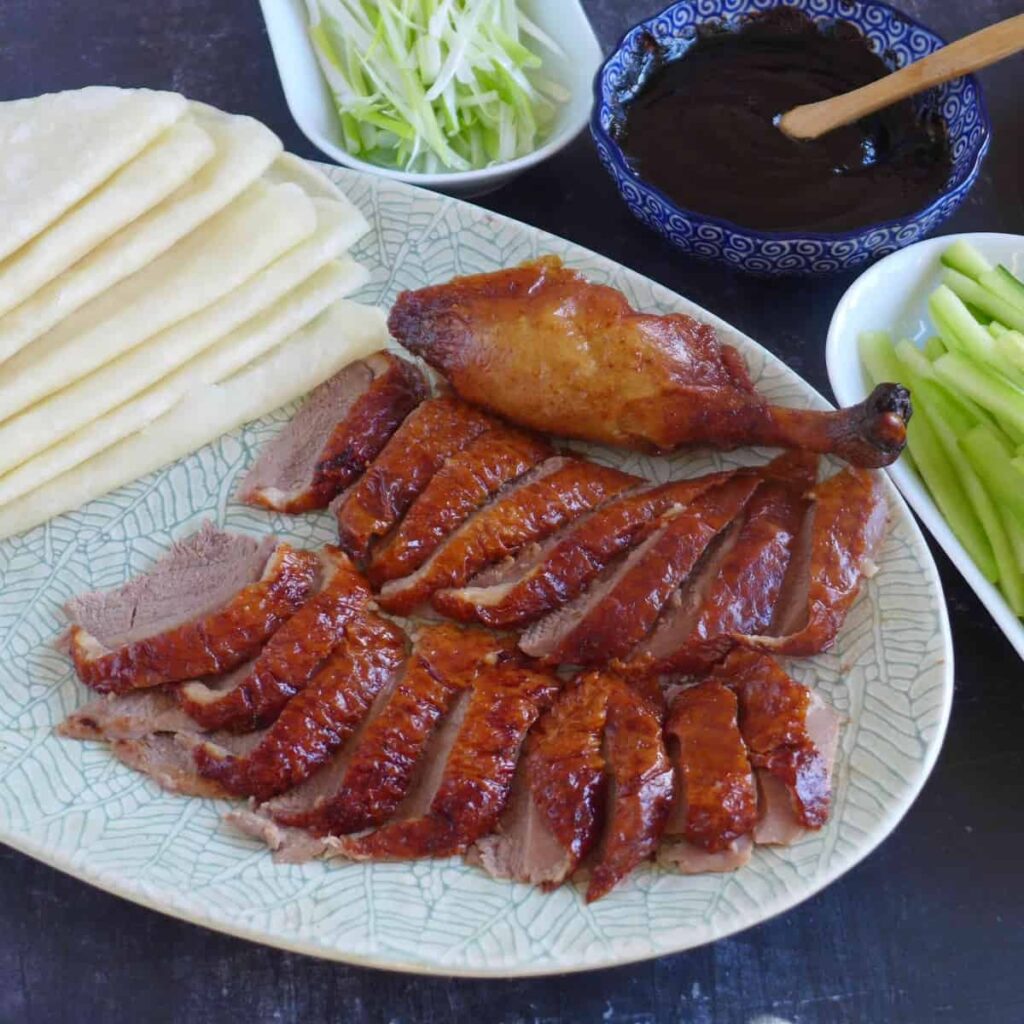
Writer Adi Tantimedh and I first met at the 1995 Vancouver International Film Festival through British film critic Tony Rayns. Adi was at VIFF with his NYU MFA thesis film while I was there with my “first feature” Flow, a feature compilation of my short films made at UCLA Film School. The fictional filmmaker character in Flow resembled Adi so that many people at the festival thought Adi was me; and hence this doppelganger relationship at a film festival was how we connected. Almost three decades later, I caught up with Adi whose podcast series Sanctuary will be released this month on August 19 by Voyage Media.
I remember we met first as filmmakers at the 1995 Vancouver International Film Festival through British film critic Tony Rayns. At what point have you decided to focus more as a writer and what was the first writing project you were commissioned for?
AT: I was always a writer first. I originally wanted to write stage plays, which I did in high school, and write and draw comics. I sold my first radio play to the BBC which was produced and broadcast on BBC Radio 4, that was my first professional job. I’d had four radio plays produced and broadcast on BBC Radio by the time I went to NYU for film school. I wanted to direct films because I felt I wanted to be able to direct the actors and cinematographer in the way I envisioned the story to be. By the time we met in Vancouver, I’d directed four short films at NYU and was eager to keep learning by making more.
The thing about filmmaking, as you know even better than I do, is that it takes a long time to get a project financed in order to produce it, and I just found that it takes me less time to write a new script, for myself, and also when producers hire me to write a script for them, than seek funding for a film I’m trying to make.
In the end, writing and continuing to write is a lot more enjoyable than the 90% of the time spent in meetings talking to money people. That’s probably why I’m not a full-time producer.

Tell us about your new sci-fi podcast series Sanctuary. What is it about and how did it come about?
AT: SANCTUARY is an 8-episode audio drama podcast series about the last woman to wake up on Mars over 1,000 years after what’s left of humanity has rebuilt civilization there, and her husband is the leader of a new country. She has to fight him to prevent an all-out war that could wipe out what’s left of humanity.
Voyage Media hired me to write a new story from a feature script and turn it into 8 half-hour episodes. I thought about all the crazy, fun Science Fiction ideas you could do: the dangers of AI, climate change that’s making Earth unlivable, class conflict, the divisions caused by Big Tech, political conflicts and war over limited resources, gender politics. propaganda, surveillance and transparency. I also thought back to Kim Stanley Robinson’s MARS TRILOGY, an ambitious novel series about trying to form a civil society on Mars, and Ray Bradbury’s MARTIAN CHRONICLES, both classics of Science Fiction set on Mars. I’m glad I got to quote W.B. Yeats’ poem “The Song of Wandering Aengus”, which Bradbury referenced in his anthology THE GOLDEN APPLES OF THE SUN. I also got the chance to write a Chinese pirate queen of Mars as a supporting character who’s the descendent of the real-life 18th Century pirate queen Ching Shih.
The last thing we worked on together was a web series / feature shot on Zoom during the pandemic titled COMISERY. Now looking back, how was your experience as a co-showrunner, co-director and writer on the show? Do you think there’s anything else we could have done better or differently looking back?
AT: That was the most fun I’d had in years as a writer and director. Co-showrunning was a fascinating experience since we were creating a whole story from scratch, filming it and putting it out from home. The way we moved very quickly – deciding on the next chapter, writing it, then shooting a new chapter per week, and adapting the story when unforeseen issues came up, like when an actor suddenly became unavailable, was great for keeping us on our toes. I’m slightly amazed we managed to tell a complete story that was cohesive and with a proper beginning, middle and end. It was also a constant discovery of what the actors were capable of and writing to their strengths, like discovering who was especially good at comedy and improvising, and tailoring the script to their strengths as the story evolved.
There are one of two little things I would want to do better if given a chance, like one instance that involved an in-camera effect that we had to direct one of the actors to do. I didn’t feel I communicated the effect we really needed to create a truly weird, surreal and haunting moment in that one little scene. That was on me. I would find a way to do better if we ever went back to it.
It was also valuable in teaching us what worked and what doesn’t in shooting a whole movie via Zoom during lockdown, especially limitations, like what viewers would tolerate before getting bored with static images of people talking to camera. That’s why I felt we should give the actors as much to do on screen as possible, both verbally and physically, to keep the image interesting and engaging. The bottom line for me is, a static camera showing a medium shot of an actor is no longer viable for filmmaking – it’s too dull for modern eyes.

You are such a writer who has worked on diverse mediums. How did the Ravi PI novel trilogy come about and how has the reception been since 2016 when you published the first book Her Nightly Embrace?
AT: The Ravi novels came about because I felt that private eye novels have never – truly NEVER – depicted what private investigators actually do. They were always male fantasies about solving murders and meeting a glamourous femme fatale. Real private investigators, especially now, don’t solve murders, they get up to far weirder and darker stuff than just solving a murder. I was, and still am, very tired of British crime novels and TV series that are terribly moody and grim with perpetually angst-ridden and tortured detectives.
So I decided to create a different kind of private eye and sort of reinvent the entire genre from scratch. I wanted to write about London and global issues so I decided on a British private eye, and a typical Londoner now is more likely to be a British person of Asian descent, hence my choice of a British-Indian hero. In real life, most private eyes are ex-cops, ex-military or ex-spies, so for a laugh I picked the least likely guy – a former high school teacher who gets hired by a very high end private investigations firm whose clientele is the rich and powerful that need help with their dirty laundry, and his fellow investigators are a diverse lot including two hardboiled ex-cops that are a gay couple, a very posh Hong Kong Chinese heiress who’s also a dangerous computer hacker, a working-class South London son of Chinese immigrants who’s a tech guy and so on, and that gave me scope to tell all kinds of stories inspired by real life issues that are in the news that I could play as dark comedy rather than grim dramas.
Reception of the RAVI trilogy has been positive but I wish the sales were better, since the big problem with any book, movie or TV show is marketing and making readers aware of them in order to read them. Just about everyone who read the books has enjoyed them. I constantly get enquiries about adapting them into a TV series or a movie and now there’s some talk about producing an audio drama podcast series.
Do you prefer to write novels or screenplays or TV shows? How do you flow so seamlessly between the diverse mediums that you write?
AT: I enjoy writing scripts for film and TV more than I do novels, which sounds strange. Yes, writing a novel means complete freedom but sometimes too much freedom. I like the discipline required to write a screenplay for a Film or TV episode. It gives me the tools to structure a story. The principles of storytelling are the same, but a script is ruthless in its demands, and I take those demands to help me write novels and prose better.
Do you have a dream or pet project you can talk about?
AT: I have a pet project involving a character I’ve had in my head for decades, a new take on the femme fatale in the crime and spy thriller genre. Even after 15-20 years, no one else has created a character like her, and she hasn’t been made obsolete by changes in the world at all. I’d love to see a full R-rated or M rated TV series featuring the character, but she might be so dark and hardcore that she might thrive more in books, and I’m planning to write that, possibly as an online serialised novel that can be read on phones.
Since you have been in America as long as I have, as an immigrant, what have you perceived about the evolution of the Asian American or AAPI identity and are you hopeful about the future of being a diasporic Asian artist?
AT: I think it’s great that Asian-Americans and AAPI representation is finally getting more notice in film and television beyond the old dreadful stereotypes, but there’s still a long way to go. The biggest issue is we need more diverse stories to be written, and not just about feeling alienated for being Asian, or how hard it is to be an Asian immigrant. Sure, those are real issues, but we need stories that celebrate the odd, diverse, quirky and rich lives of being Asian-American without worrying about not being “Asian enough”, which is too often the subtext and main anxiety of Asian-American stories. I’d like to see Asian-Americans and AAPI creators embrace the diversity of different genres the way native Asian countries do in their own cultures without feeling like they have to pander, be it romantic comedy, political drama, espionage, crime, family melodramas, fantasy, Science Fiction on top of the personal stories about the writers’ families. Asian countries are monocultures so they never had to deal with being made to feel like outsiders so they just embraced all forms of storytelling without that hang-up. I’d like to see Asian-American arts achieve that confidence in their storytelling. Popular culture has to entertain after all, not feel like medicine or homework. Fun is the spoonful of sugar that makes the medicine go down. From the point of view of film and television, we have the actors who can do it, we still desperately need more writers with unique voices that are more than just “I am Asian.”

What’s your favorite food? What would be your last meal?
AT: I have a lot of favourite foods – Chinese, Japanese, Korean, Italian. I’ve recently developed a liking for Natto, the fermented soybeans from Japanese cuisine, and become slightly obsessed with how many different dishes you can make with Natto on top of the health benefits. For my last meal, I would pick Peking Duck.
As a veteran writer, what is one or two pieces of advice you’d give to someone like you who wants to become a writer?
I can only speak from the perspective of someone who writes fiction, since I find it more fun to make things up for a living. Otherwise I might have become a journalist and probably ended up getting jailed or killed.
So the advice I would give a writer is, find something you want to say and learn the best way to say it. You’re a writer when you write, so keep writing, because the more you write, the more you learn and the better you get at it. Develop a work ethic and meet your deadlines, even the ones you impose on yourself.
Lastly, when you’re writing a story, any story, you need to answer these very important questions: Why should the reader care about this story? Why should the reader care what happens to your characters or not? You need to give them a reason to care, or your story doesn’t work, no matter how much time you spend on it.
Being a writer, artist or actor are the three jobs nobody is forcing you to do and family members might try to force you NOT to do, so you better enjoy it.
Follow Adi on X via @lookitmoves and he is a prolific contributor on Bleeding Cool.

